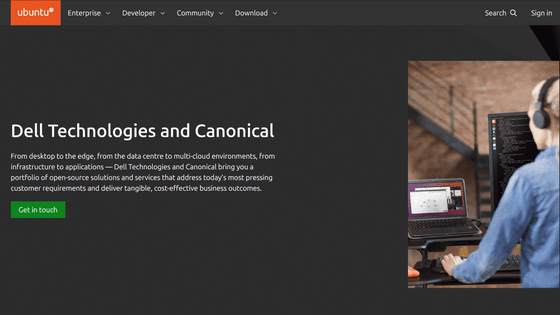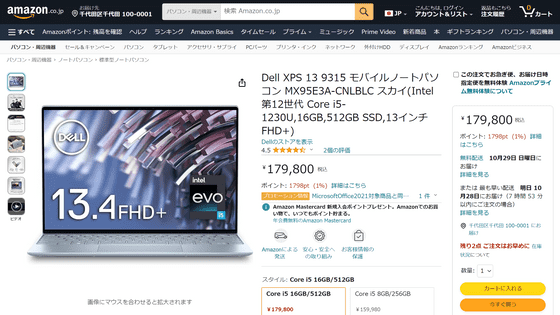How did Dell's high-end Linux-equipped notebook PC for developers 'XPS 13 Plus developer edition' come to be released?

Dell released the Ubuntu-powered notebook PC ``
How Ubuntu Linux snuck into high-end Dell laptops (and why it's called 'Project Sputnik') | ZDNET
https://www.zdnet.com/article/how-ubuntu-linux-snuck-into-high-end-dell-laptops-and-why-its-called-project-sputnik/

Dell originally supported Linux since the 2000s, primarily for workstations equipped with RHEL (Red Hat Enterprise Linux). However, none of Dell's previous PCs became an attractive option for developers.
George was thinking about how Dell could become more important to developers, and RedMonk co-founder Stephen O'Grady told him, ``Get a laptop, put Ubuntu on it, and run it.'' He said he got the idea, 'I wish I had one.' However, when George told Dell's upper management about the expected sales volume, he was told, ``That's only the number of notebook PCs sold between 3:00 p.m. and 4:00 p.m. on Tuesdays in Belgium.'' The answer was that we needed to expect a fairly large number of sales.
Although he received a disappointing review once, George did not give up, and when Dell launched an internal innovation fund, he proposed the same idea again and received a budget of $40,000 (approximately 6 million yen). He said. George said that although he received formal permission to work on the project, it was a free time rather than full-time project, with a staff of two and a dog.
When Mr. George published on his blog that Dell was planning to release a Linux-equipped notebook PC, the number of accesses to the blog increased from 60 PV to 15,000 PV per day, and he said, ``Ready-to-use Linux-equipped notebook PC'' It has been found that there is a high level of interest from users.
Even if you say that you will install Linux on your notebook PC, when the project started in 2013, there were many bugs that occurred just by installing it. George created an Ubuntu image that can be used with XPS 13 and released it for developers, clearly stating that it is ``not an official release'' and ``not supported.'' Techniques that cannot be used with consumers are no problem when used with developers who know that it is a beta version, and most bugs have since been resolved.
Additionally, Dell worked with Canonical, the parent company of Ubuntu Linux, to ensure all drivers are installed for a top-notch Ubuntu Linux developer desktop experience. The project was named ``Sputnik'' after Mark Shuttleworth, the founder of Ubuntu, CEO of Canonical, and the second person in the world to travel to space at his own expense.

When announcing the beta program for Ubuntu-powered PCs with a 10% discount, George expected around 300 people to participate. However, 6,000 people actually gathered, and upper management gave the OK to the project. George says that the system was built quickly, taking nine months from slide to launch.
More than 10 years have passed since the project began, but Ubuntu Linux-powered systems such as the Dell XPS 13 series are becoming more popular than ever. In addition, when I checked Dell's official website, at the time of writing the article, there were no Ubuntu Linux-equipped PCs available in Japan.
Amazon | Dell XPS 13 9315 Mobile Laptop MX95E3A-CNLBLC Sky (Intel 12th Generation Core i5-1230U, 16GB, 512GB SSD, 13 inch FHD+) | Dell | PC Bags/Cases/Sleeves Mail Order

Related Posts:
in Hardware, Posted by log1d_ts







